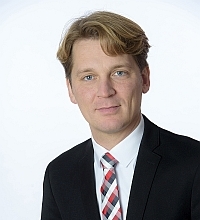- Industries
- Factory of the Future
- Products
- Company
- Career
- Contact
Aircraft Production goes “GREEN” – Broetje-Automation Collaborates with Airbus Aerostructures to Promote Sustainable and Resource-Efficient Production
Published on 23 February 2024
Broetje-Automation has successfully collaborated with a broad industry consortium to identify ways to reduce the environmental impact of today’s production facilities. The “GREEN” project, a joint initiative of a consortium of partners including OFFIS e.V., DLR e.V., ProIng and Broetje-Automation GmbH under the leadership of AIRBUS Aerostructures, developed measures to reduce the power consumption of old systems by up to 85% in certain areas of application. Overall, especially retrofitting older systems allows significant contributions towards a more sustainable industrial production.
Representative Use Cases
The “GREEN” project focused on new approaches for a more sustainable Factory of the Future by linking individual use cases. Each partner contributed specific expertise in digitalization, automation, shop floor management, safety and production, creating a holistic view of production processes. The project was supported and funded by NBank Niedersachsen.
By implementing representative use cases, Broetje-Automation developed practical solutions for a sustainable change in the aerospace manufacturing industry, that can be implemented in the short term. Efficiency improvements can be achieved without having to replace entire systems.
In detail, the project team has addressed three major trigger points:
- Reduction of consumption of power and compressed air by advanced standby-management
- Replacement of auxiliary units
- Retrofitting of machines (e.g. by exchanging hydraulic with electric systems)
Standby Management Optimization and Retrofit Potential
As a reference, two operational fastening machines at the AIRBUS Aerostructures site in Nordenham were monitored in detail. The standby times were analyzed in terms of both the power consumption and compressed air consumption. This analysis showed that with an innovative standby management system, savings of up to 85% in electricity and 23% in compressed air can be realized.
As additional measures, auxiliary units such as electrical cabinet cooling and drill spindle cooling are seen as having potential for further improvement. An additional 5% can be achieved by replacing the drill spindle cooling and 10% by replacing the electrical cabinet cooling. These are relatively simple measures that have an immediate effect on the daily consumption of the machines.
The biggest impact on a more sustainable approach to industrial manufacturing has been demonstrated by the current retrofit campaign at Airbus Aerostructures. “The course of the project has shown that the measures have the potential to achieve energy savings of up to 50% by optimizing not only downtime but also ongoing production. In addition, retrofitting of large gantry systems offers our customers a variety of options for improved, cost-saving and reduced energy consumption in production combined with additional overall efficiency of the systems.” states Christian Heyers, Vice President Engineering at Broetje-Automation.
Great Partnership and Results
The knowledge gained from this project not only provides an immediate improvement to the operation of the machines, but also serves as a blueprint for improving existing systems worldwide through retrofits. By further developing these strategies, Broetje-Automation is not only contributing to immediate energy efficiency gains, but also paving the way for a sustainable and cost-effective approach to industrial energy management on a broader scale, enabling its customers to improve their carbon footprint and cost savings.
The cooperation with Airbus Aerostructures and the other project partners in the “GREEN” project reaffirms Broetje-Automation’s commitment to sustainable production in the aerospace industry. We will continue to optimize our machines based on the know-how gained in this joint project to further improve the manufacturing standards in the factory of the future.


